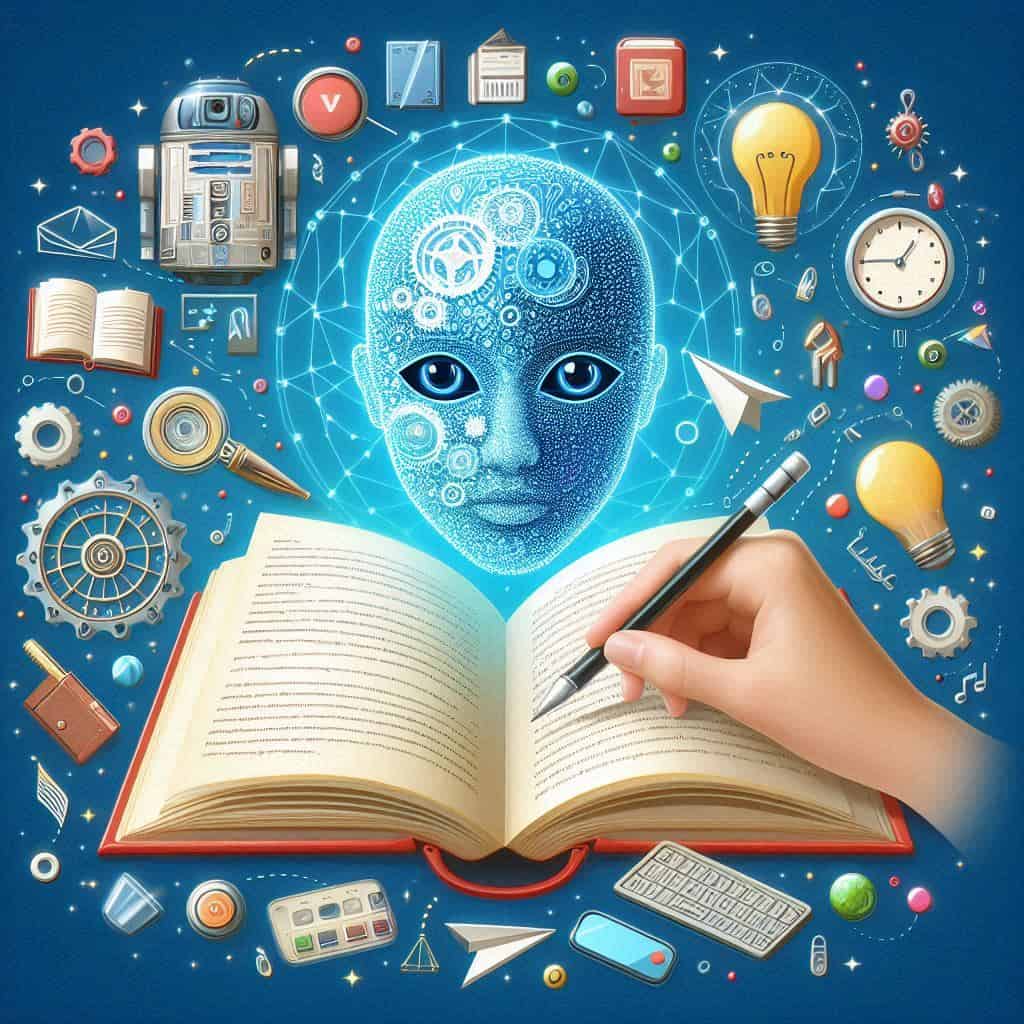
Beyond the Buzz: Navigating the Ethical Landscape of Artificial Intelligence
- Resources & Community

It looks like you’re trying to figure out how to use AI ethically. It’s a valid concern! AI is becoming more and more common, and we need to use it responsibly. Turning in AI-generated work as your own is definitely wrong, but there are ways to use AI to improve your writing without crossing any ethical lines. Keep reading to learn more about how to use AI ethically at different stages in your writing process! I’ll cover things like:
- Generating ideas
- Researching your topic
- Outlining your paper
- Getting feedback on your drafts
- And lots more!
Understanding the Ethical Landscape of Artificial Intelligence
Artificial intelligence (AI) is rapidly transforming our world, permeating industries from healthcare and finance to transportation and entertainment. AI systems leverage technologies like machine learning (ML) and natural language processing (NLP) to help people make more informed decisions and streamline complex tasks. While AI’s potential benefits are undeniable, its rapid development and integration raise crucial ethical considerations that demand careful attention.
Key Ethical Issues in AI Decision-Making
One of the most pressing ethical concerns is the potential for AI systems to perpetuate existing biases. AI algorithms learn from the data they are trained on. If that data reflects societal biases, the AI system can inadvertently amplify those biases, leading to unfair or discriminatory outcomes. This is known as automation bias.
Real-World Examples of AI Bias
- AI in Hiring and Recruitment: AI-powered screening tools have been shown to discriminate against candidates based on factors like gender or race, perpetuating existing inequalities in the workforce.
- AI in Criminal Justice: Risk assessment algorithms used in the criminal justice system have raised concerns about racial bias, potentially leading to unfair sentencing recommendations or parole decisions.
Solutions to Mitigate AI Bias
- Data Diversity and Bias Mitigation: Training AI models on diverse and representative data sets is crucial to reduce bias.
- Human Oversight and Accountability: Human involvement in AI decision-making is essential to ensure fairness, accuracy, and alignment with ethical values.
- Auditing and Accountability Mechanisms: Independent audits of AI systems can help identify and correct biases.
Data Privacy and Security in the Age of AI
AI systems are data-hungry, requiring massive datasets to function effectively. This data dependence raises serious concerns about data privacy and security. The potential for AI to be used for surveillance, profiling, and other privacy-invasive practices is a growing concern.
Protecting Data Privacy
- Robust Data Protection Protocols: Organizations must implement strong data governance frameworks, privacy policies, and data encryption techniques to protect sensitive user information.
- Data Anonymization and De-identification: Methods for protecting individual privacy by removing personally identifiable information from datasets while still enabling AI to learn from the data are essential.
- Transparency and User Control: Giving individuals control over their data and being transparent about how AI systems use their information is crucial for building trust.
The Social and Cultural Implications of AI
Beyond decision-making and data privacy, AI also has profound social and cultural implications. Generative AI, like ChatGPT, is transforming content creation, blurring the lines between human and machine-generated content. This raises concerns about the spread of misinformation and the erosion of trust in traditional information sources.
Addressing Deepfakes and Misinformation
- Clear Labeling and Transparency: AI-generated content should be clearly labeled to distinguish it from human-generated content.
- Tools for Detecting Deepfakes: Developing and deploying technologies to identify and flag manipulated content is crucial.
- Media Literacy and Critical Thinking: Educating the public about AI’s capabilities and limitations is essential to foster media literacy skills.
Legal and Policy Frameworks for AI Ethics
The rapid advancement of AI requires specific regulations and ethical guidelines to ensure its responsible development and use. Policymakers worldwide are grappling with the challenge of regulating a technology that is constantly evolving.
Shaping Ethical AI Policies
- Comprehensive Legal Frameworks: Develop and implement comprehensive legal frameworks that address data privacy, algorithmic transparency, accountability, and public oversight of AI systems.
- Multi-Stakeholder Collaboration: Involve diverse stakeholders in policymaking processes to ensure that AI regulations are robust and fair.
The Future of AI and Emerging Ethical Challenges
As AI becomes more sophisticated, new ethical dilemmas will inevitably emerge. Ongoing dialogue, interdisciplinary collaboration, and public engagement are crucial for navigating these challenges.
Frequently Asked Questions about Ethical AI Use in Writing
What are the ethical implications of using AI in healthcare?
AI offers immense potential in healthcare, but ethical considerations include bias in algorithms, patient privacy, and the impact on the doctor-patient relationship.
How can we ensure accountability for the ethical use of AI?
Establishing clear lines of responsibility, developing auditing mechanisms, and enacting regulations are essential steps.
What are the potential social and economic impacts of widespread AI adoption?
AI could lead to job displacement and economic inequality, influencing decision-making processes and social interactions.
Conclusion: Embracing AI Responsibly
The ethical considerations surrounding artificial intelligence are essential for harnessing AI’s potential while mitigating its risks. By fostering a culture of responsible AI, we can ensure that this transformative technology aligns with human values and benefits humanity as a whole. Stay informed, participate in the conversation, and help shape the future of AI.
Share:


